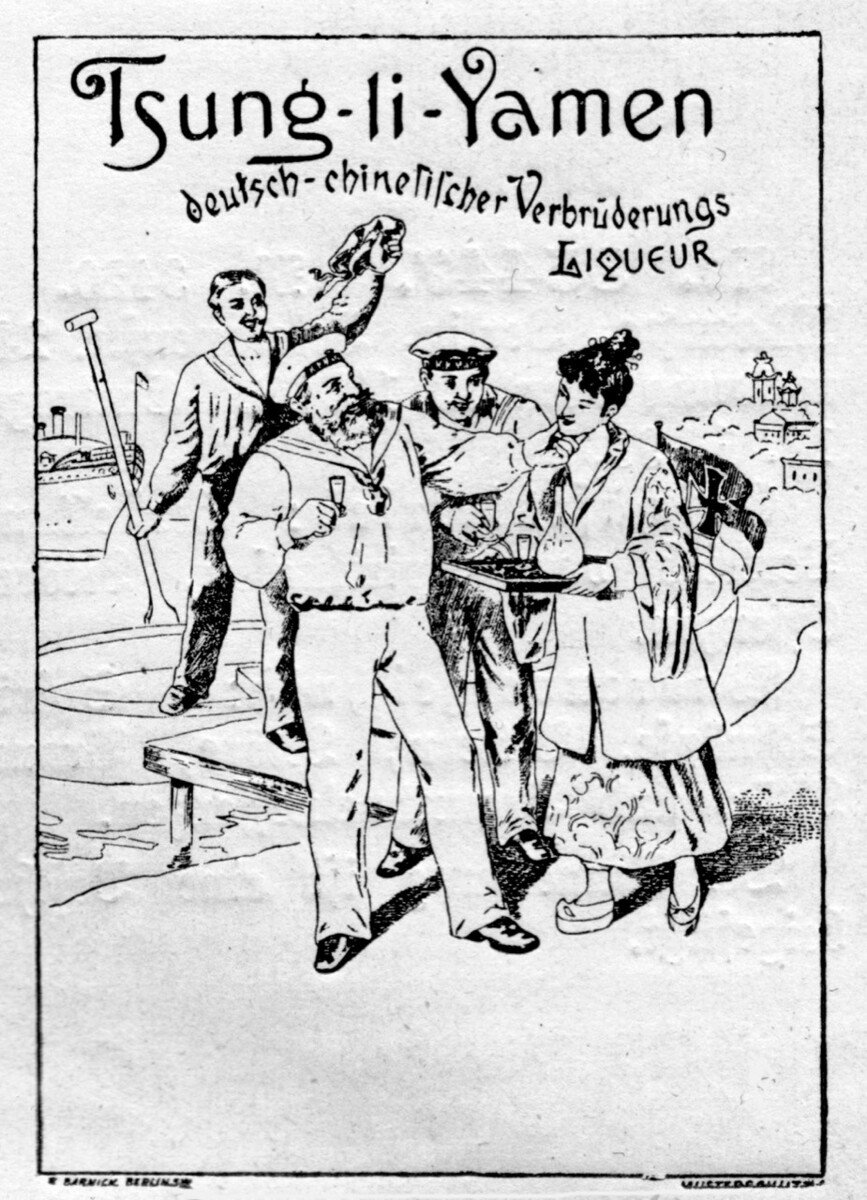Source

Source: Warenzeichenblatt des kaiserlichen Patentamts (WZB) 1899: 140, reg. no. 35469.
In 1898, Germany seized territory around Jiaozhou Bay (Kiautschou) which then became a de-facto German colony on the Chinese coast. This territory included the city of Qingdao (Tsingtao) and was ostensibly given to Germany as compensation for the murder of two German Catholic missionaries the year before. In fact, the seizure had been long planned by the German Navy, and the murder of the missionaries only provided the excuse.
This advertisement by Louis Ackermann Jr., a Berlin distiller, intended for use in Germany, celebrates the acquisition of the coastal colony with a new “German-Chinese Friendship Liquor.” Tsung-li-Yamen was the name of the Chinese foreign office at the time, and the word “Friendship” on the label would seem to point to peaceful cultural exchange. Yet the advertisement’s image shows a different relationship: three celebrating German sailors, fresh off of a warship, appraise a Chinese serving girl as she brings them schnapps. She is depicted as flattered by the sailors’ attention, but the ominous overtones to the illustration—where colonialism is depicted as sexual conquest—should not be overlooked.

Source: Warenzeichenblatt des kaiserlichen Patentamts (WZB) 1899: 140, reg. no. 35469.
David Ciarlo, Advertising Empire: Race and Visual Culture in Imperial Germany. Harvard University Press, 2011.